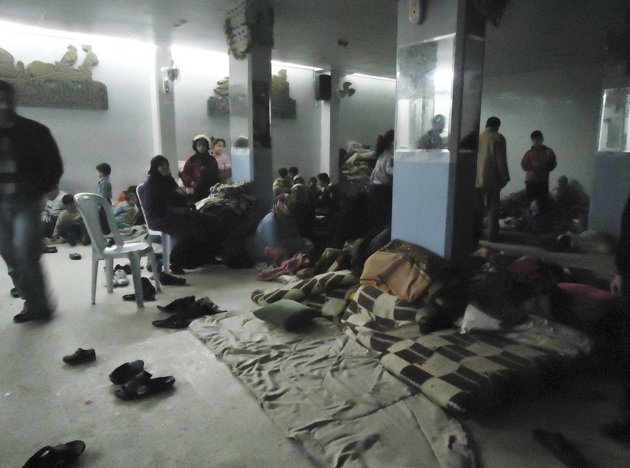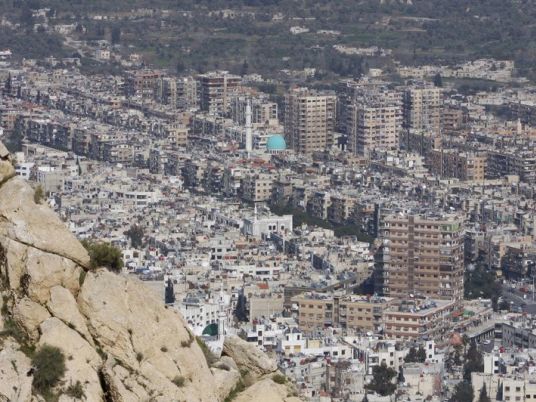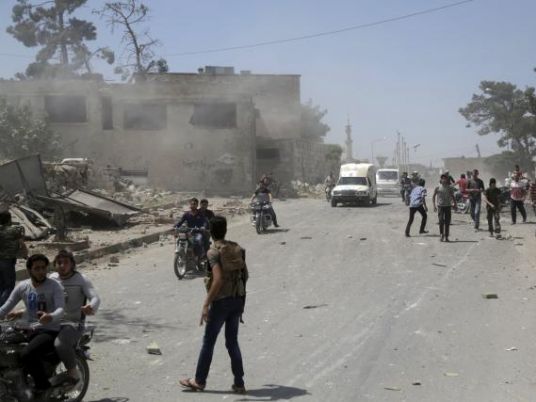
Aid workers fear a major humanitarian crisis for millions of Syrian refugees in the Middle East after funding gaps forced the United Nations to cut food assistance for 1.7 million people.
The UN's World Food Programme said Monday it needed $64 million (51 million euros) to fund its food voucher programme for December alone, and that "many donor commitments remain unfulfilled".
The announcement came as aid groups struggle to prepare millions of refugees for the impending winter, particularly those living in informal camps in cold, mountainous areas.
"It's going to be a devastating impact. This couldn't come at a worse time," said Ron Redmond, regional spokesman for the UN refugee agency UNHCR.
"We're trying to get everyone prepared for winter and if you look at the conditions particularly in Lebanon in some of these informal settlements, the conditions are already very bad."
"We're doing everything we can… to keep their shelters at least warm and as dry as possible. But you can be warm and dry, but if you don't have food, you're in big trouble."
WFP's food vouchers were helping nearly two million refugees scattered in countries around the Middle East.
'A nightmare for refugees'
Each refugee receives a card that is topped up with money each month.
The amount differs from country to country, but is intended to allow each refugee to buy food equivalent to 2,100 calories per day.
But for most of the agency's recipients, December's top-up has not arrived.
Worst-hit in the region is Lebanon, where more than 800,000 of the 1.1 million Syrian refugees in the country were receiving WFP food voucher support.
In Jordan, some 450,000 refugees will get no money this month, though around 90,000 living in the UN's Zaatari and Azraq camps will continue to receive assistance.
In Turkey and Egypt, there are sufficient funds to provide aid until December 13 but not beyond, said WFP's Regional Emergency Coordinator Muhannad Hadi.
"It's going to be a nightmare for refugees," Hadi told AFP.
"Those people are depending on the WFP to feed them, most of them are totally dependent on us. They have no income."
Many refugees struggle to make ends meet even with international aid, and in Lebanon and elsewhere they often live in squalid informal camps, exposed to the heat of summer and cold of winter.
Across the region, they also face increasing tension with host communities angry about the strain that the refugee influx has put on sparse local resources.
Latest in string of cuts
"We are suffering more-and-more, day-by-day. The world is ignoring our misery," Abu Yaman, a Syrian refugee living in Ramtha in north Jordan, told AFP.
"The Jordanian government helps us, but Jordan is already a poor country and we can't expect a lot from a country that was already suffering a financial crisis before hosting hundreds of thousands of Syrians," added the 30-year-old, from the southern Syrian province of Daraa.
The announcement from WFP is the latest in a series of cuts made by agencies and NGOs assisting more than three million Syrian refugees.
They say funding pledges have not materialised, and "donor fatigue" is beginning to set in, nearly four years after the conflict in Syria began with anti-government protests in March 2011.
Last year, UNHCR announced it was cutting some of its aid to more than a quarter of refugees in Lebanon, partly due to funding shortfalls.
And WFP said in September that it was being forced to scale back the size of food rations for displaced and impoverished Syrians still in Syria.
The diminishing humanitarian assistance has created bitterness and disappointment among many refugees.
"They want us to go back and die in Syria," 21-year-old Khaldun Kaddah, who lives in Jordan, said of WFP's announcement.
"Shame on them… Western countries talk too much about human rights and the truth is that they do not care for our basic rights."



